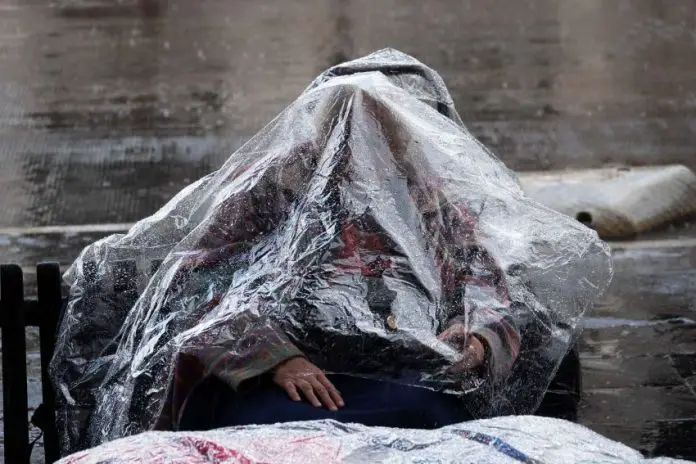Hello readers! This week we are going to talk about the weather in hopes of helping you pack for your vacation in Central Mexico. Here are some insights about helpful vocabulary words and phrases to use when you talk about the weather in Spanish.
There are two seasons in Central Mexico, the rainy season that used to start in late May, has now become the hottest of the year. As a result of climate change, the showers now arrive in July and last until October. The rest of the year is very dry. So, if you are visiting our beautiful country during the rainy season, make sure you save some space in your bag for your umbrella and some in your head to learn how to say some Spanish.
View this post on Instagram
Umbrella = paraguas [parawas]. Paraguas is an easy word, isn’t it? Let me introduce you to some more useful and complex sentences so you can actually use them with someone on the street or when you want to start a conversation.
Qué calor
This phrase means “it is very hot”. You can use it when you want to express how hot the weather is, you can also exchange it for “Hace calor”.
Example 1
- Qué calor, necesito un abanico (It ‘s very hot, I need a fan.)
Example 2
- Hace mucho calor aquí, ¿no? (It’s very hot in here, isn’t it?)
Está lloviendo
This means “it is raining”. If you find yourself caught in a sudden downpour, you can say Está lloviendo, hay que correr (It’s raining, we’ve to to run). Or before you come you can text your friend: ¿Está lloviendo en México? (Is it raining down there?)
El clima está loco
“The weather is crazy!”. Given the unpredictable weather patterns due to climate change, this phrase might come in handy. For example: ¿Hace frío o calor? — Ya no se sabe, el clima está muy loco (Is it hot or cold? It’s hard to tell, the weather is crazy.)
Tráete un paraguas
“Bring an umbrella with you.” This is the imperative way to use the verb bring and to speak in second person. You would say this to a family member or a friend. And in case you went out without one or couldn’t fit it in your luggage, you might want to get one at the store, this is how you would ask for it: ¿Tiene paraguas? (Do you have an umbrella?)
Está nublado/está despejado.
Meaning “it’s cloudy/the sky is clear”. Examples of usage: ¿Está lloviendo? — No, solo está nublado. (Is it raining? No, it’s just cloudy.)
Example 1
- No creo que llueva, el cielo está despejado. (I don’t think it’ll rain, the sky is clear.)
By learning these phrases, you’ll be better prepared to discuss the weather with locals and make the most of your trip. These expressions will help you get by the ever-changing climate with ease.
Paulina Gerez is a translator-interpreter, content creator, and founder of Crack The Code, a series of online courses focused on languages. Through her social media, she helps people see learning a language from another perspective through her fun experiences. Instagram: paulinagerezm / Tiktok: paugerez3 / YT: paulina gerez
